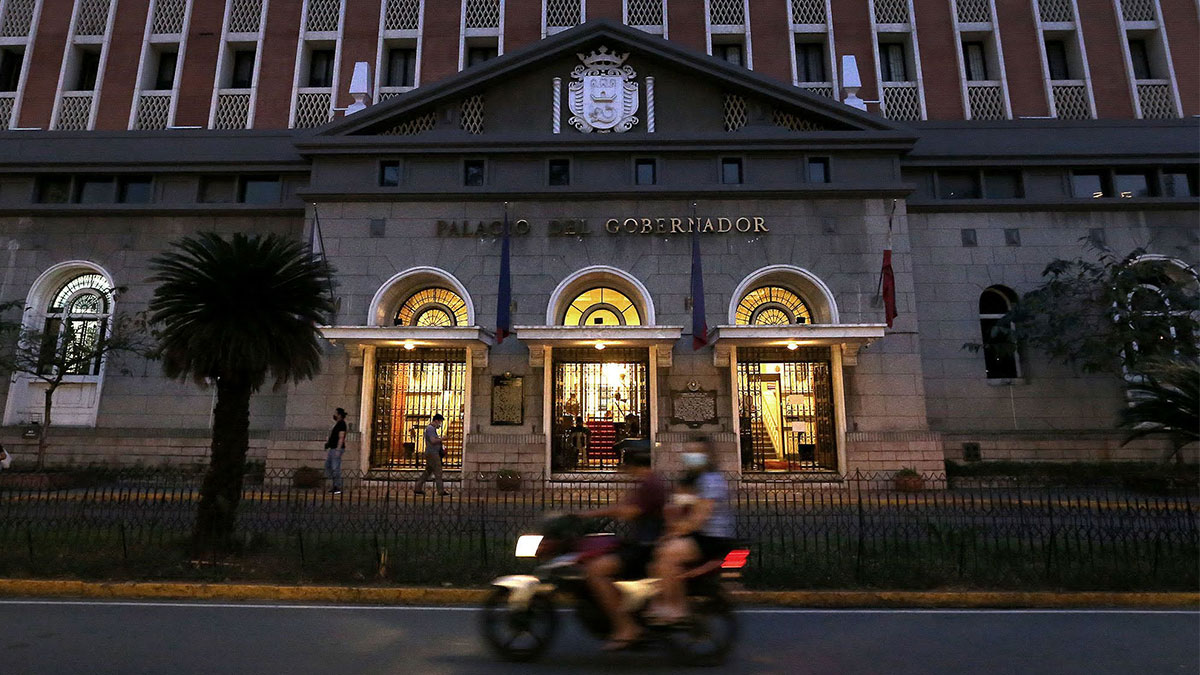Garcia asks House to push reforms on campaigning, party-list

Commission on Elections. Inquirer file photo.
MANILA, Philippines — Commission on Elections (Comelec) Chairperson George Garcia has appealed to the House of Representatives to push for legislation that would address concerns on premature campaigning and address loopholes in the party-list system.
During the discussions on Comelec’s 2026 budget before the House of Representatives, Garcia was asked by Akbayan party-list Rep. Chel Diokno regarding the two topics, as to what the poll body can do to level the playing field in terms of campaigning.
Garcia said that the premature campaigning provisions are only implemented at the level of the Barangay and Sangguniang Kabataan Elections due to the existence of a Supreme Court (SC) order in Peñera vs. Comelec, which deems that those who submit certificates of candidacy only become official candidates once the campaign period starts.
READ: Don’t test voters’ patience, Comelec chief tells bets
This, Garcia said, highlights the need for amendments to the Omnibus Election Code.
“We really have a huge problem because in barangay and SK elections, we are able to enforce violations because of premature campaigning. Because the Penera vs. Comelec doctrine does not apply for manual elections, that’s why we have premature campaigning under Section 80 ng Omnibus Election Code,” Garcia said.
“Unfortunately, even the Supreme Court, Justice Carpio in his initiatory paragraphs in the decision on Penera vs. Comelec (admitted) that it cannot do anything. Even the Supreme Court’s hands are tied because the Supreme Court said, it’s a law. It’s under the provision of Section 14 of (R.A.) 9369 amending Section 9 of Republic Act 8436. So our problem here is legislation,” he added.
The Omnibus Election Code sets the campaign period at 90 days before the election for national elections, 45 days for local elections, and 15 for barangay elections.
According to Section 80 of the OEC, it is illegal for “any person, whether or not a voter or candidate, or for any party, or association of persons, to engage in an election campaign or partisan political activity except during the campaign period…” except during a political convention or meeting to nominate a party’s candidates.
Motion for reconsideration
However, a 2009 SC ruling practically voided Section 80, after it granted the motion for reconsideration of Rosalinda Penera, then-mayoralty candidate of Sta. Monica town in Surigao del Norte.
The motion effectively junked the disqualification case filed by Penera’s opponent against her for early campaigning, as the SC ruled that Penera was not guilty of such an offense because she was not yet an official candidate.
According to Garcia, they wanted to enforce the provisions barring premature campaigning, but the law on automated elections prevents them.
This also means that some candidates can circumvent spending and airtime limits, as advertisements and other activities before the official campaign period are not yet tabulated.
One solution that Garcia sees is the increase in the spending limits, which was last set in February 2001.
“In the last campaign season, it was widely reported that some candidates spend up to a billion pesos in their campaigns. How can we have fair elections if some candidates can spend that much money compared to others who do not have access to that kind of resources?” Diokno asked.
“We really need a law, because under our Republic Act 9006, the Fair Elections Act, we have P3 per registered voter if he or she has a party, and P5 per registered voter if there is no party. So it is really so low. I hope we can increase it at the local level to at least P20 and P40,” Garcia said.
“And of course, considering that the expenditures before being a candidate are not reported, 90 days before the election for national positions and 45 days in the case of local positions. So, it should really be by legislation, Madam Chair. Definitely if the Comelec will do that, that’s impeachable and that will be a usurpation of the legislative prerogative,” the Comelec chief added.
On party-list reforms
Diokno’s line of questioning also touched on the party-list system, which he feels is being taken advantage of by political families and even contractors. In response, Garcia said that there should be changes to R.A. No. 7941 or the Party-List System Act.
“‘Yon pong Republic Act 7941 […] it’s overdue for amendments, there have been no changes even a word, a paragraph, a sentence to Republic Act 7941. It requires legislation. It should not only be an amendment but it should be a revision of Republic Act 7941,” Garcia said.
According to the Comelec chief, even the SC directives on who can be a party-list representative has been confusing, noting that the High Tribunal stated that one does not need to be “wallowing in poverty.”
“It says you do not have to wallow in poverty. It’s enough that you have a proven advocacy in that sector being represented. If you are a super billionaire, you can represent the poor as long as you have the proven advocacy. Regardless if you are a man or a woman, you can represent women even if you are a man,” Garcia said.
There have been several calls for a reform in the party-list system. Last March — before the 2025 midterm elections, constitution framer Christian Monsod said that the party-list system should be amended because it is being abused by “dynasty clans.”
READ: PH Constitution framer: Amend party-list system abused by dynasty clans
Monsod, himself a former Comelec chairman, said that an anti-political dynasty provision must also be included in the party-list system law. /mr


















